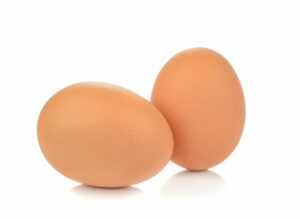
The appetite of most seniors is not what it used to be. With a range of factors contributing to the decline, many elderly people struggle to keep weight on or to get the nutrients they need. Family caregivers and home care aides that prepare meals for seniors need to make every bite count, so what better food to provide nutrition, taste and cost all at once than eggs?
May is National Egg Month and it is definitely worth investigating all the traditional and not-so-traditional ways to incorporate it into snacks and meals. If you have an elderly loved one that needs a little boost in their diet, consider adding at least one egg per day.
Egg Nutrition
For thousands of years, humans have been eating all types of eggs and reaping the nutritional benefits. Today’s eggs are extremely good for you and provide plenty of vitamins and minerals for the body. In fact, one egg contains 13 important vitamins and minerals, including Vitamin D, Vitamin E, Vitamin B3, zinc, folate, phosphorous and riboflavin, among others.
In addition, one large egg provides 6 grams of protein as well as leucine, a vital amino acid. The best part is that one egg is only 70 calories, making it ideal for just about any age.
Seniors Benefit From Eating Eggs
As people grow older, their nutritional needs are as important as ever. Because their food intake tends to be smaller than other adults, the food they do eat needs to be as healthy as possible. Eggs contain essential nutrients that keep seniors more healthy. Here are just a few example:
- Protein provides energy and helps repair body tissue deterioration.
- Vitamin D strengthens bones and helps the body with calcium absorption.
- Vitamin B12 helps the blood and regulates brain function.
- Lutein can reduce the risk of cardiovascular disease
- Zeaxanthin helps the body to fight off disease
There’s no doubt that eggs deserve their reputation as one of nature’s superfoods as they work to reduce and reverse many of the problems that seniors encounter as a result of aging.
Preparing and Serving Eggs to Seniors
Eggs are so versatile that it’s quite possible to enjoy them in many ways, from snacks to sides to meals. Poached, scrambled, boiled, steamed and fried, there are lots of methods for preparing eggs for seniors. The only thing that medical experts recommend when it comes to serving eggs to the elderly is to steer clear of runny eggs because of the possibility of food-borne illnesses. Otherwise, it’s perfectly fine to include eggs as part of a senior’s healthy diet.
Whether eggs are served for breakfast, lunch or dinner, family members need to make sure to include eggs in the daily diet of their aging loved one. Coordinating diet preferences with other family members, home care aides and others will ensure that elderly loved ones can reap the nutritional benefits of eggs.
If you or an aging loved one are considering hiring professional home care in Claremont, CA, call the caring staff at Aviva In-Home Care. Call today: (415) 795-2203
- Do You Need Help with Personal Care for Your Senior? - September 16, 2019
- Causes and Risk Factors for Shingles in the Elderly - September 12, 2019
- Five Reasons Your Senior Might Need a Daily Routine - September 5, 2019




